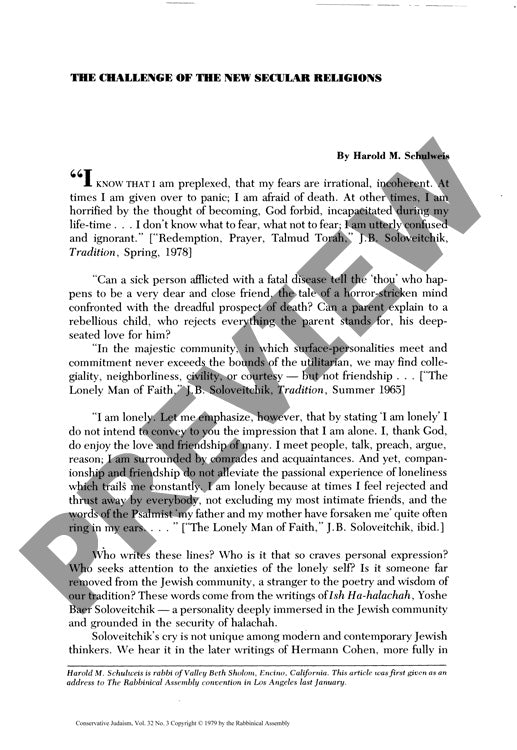The Challenge of the New Secular Religio
Couldn't load pickup availability
Abstract This article examines the challenge posed by emerging secular religions and psycho-therapeutic movements to traditional Jewish religious institutions. Using qualitative analysis of contemporary Jewish thinkers' writings and ethnographic observations from synagogue practice, Schulweis investigates why increasing numbers of Jews are drawn to encounter groups, human potential movements, and other secular therapeutic enterprises that function as alternative religious systems. The study identifies a fundamental disconnect between traditional Jewish communal discourse focused on collective obligations (reshut ha-rabbim) and the personal existential needs of contemporary Jews seeking meaning in their individual lives (reshut ha-yachid). Through examination of Jewish participation in movements like Scientology, transcendental meditation, and various encounter groups, the research reveals that these secular religions offer personal attention, emotional honesty, and intimate community that synagogues fail to provide. The article argues that these movements represent legitimate religious challenges rather than mere therapeutic fads, featuring their own doctrines of human nature, salvation rituals, and supportive communities. The methodology includes analysis of participation patterns, interviews with practitioners, and comparison of traditional Jewish approaches to personal crisis with secular alternatives. The key finding demonstrates that Jewish institutions must address "the man in the Jew" by developing para-professional programs that integrate Jewish wisdom with personal counseling. The study concludes by proposing a practical solution: training lay synagogue members as para-rabbinic counselors to bridge the gap between ritual observance and life passages, thereby creating more compassionate Jewish communities that respond to both collective identity and individual spiritual needs.

More Information
-
Physical Description
-
Publication Information
Published 1979
ISBN
-
Publication Credits
Harold Schulweis

